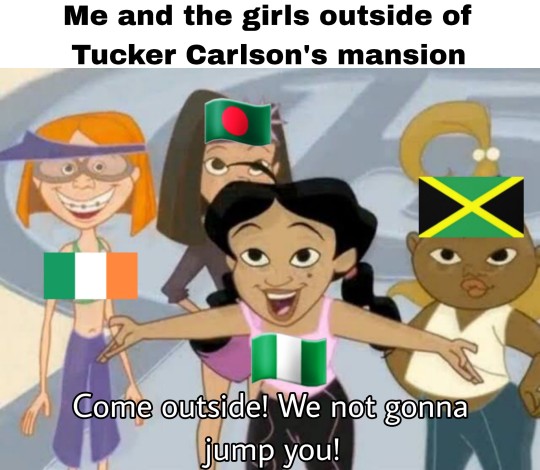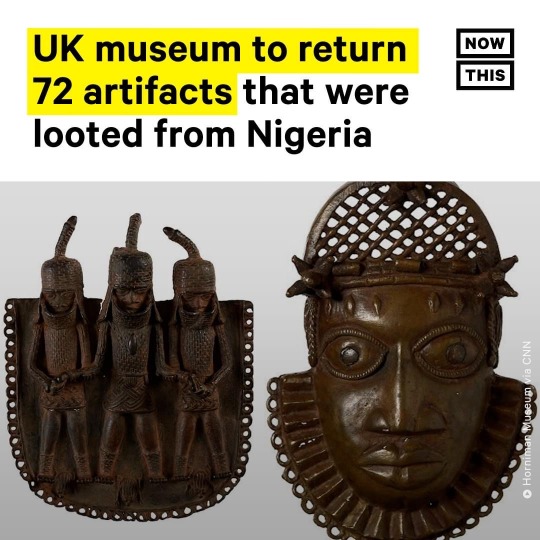#colonialism in nigeria
Text
The Ekumeku Movement Explained
Igbo Culture
How this Igbo group resisted British domination for 30 years
During Britain’s colonisation of Nigeria, one of the most prolonged and drawn-out conflicts was against the Ekumeku. A movement fought by the Anioma, an Igbo subgroup, and their neighbouring Igbo allies.
So, what sparked the beginning of the movement?
As the British looked to complete their colonial domination of the people within…

View On WordPress
#30 years ekumeku#a history of delta igbo people#adiele afigbo#akwa ocha#ANIOMA#British native courts#colonialism in nigeria#delta igbo#delta igbo history#EKUMEKU#EKUMEKU WARRIORS#igbo#igbo anime#igbo culture#igbo essays#igbo history#igbo nigerian history#igbo resistance to colonialism#igbo wardfare#Ika Igbo#native courts#nigeria#ogwashi-ukwu#pan igbo#pan-igbo studies
13 notes
·
View notes
Text
"When Ghana’s parliament voted to decriminalise suicide and attempted suicide in March, Prof Joseph Osafo felt a weight lift from his shoulders.
Osafo, head of psychology at the University of Ghana, had been engaged in a near 20-year battle to abolish the law – brought in by the British – which stated that anyone who attempts suicide should face imprisonment or a fine.
“It was a very good feeling. I felt like a certain burden had been removed. I was extremely elated,” he remembers. “Then the next morning, I realised we had a lot of work to do.”
Four countries decriminalised suicide in just the past year
Ghana is one of four countries to have decriminalised suicide in the past year – Malaysia, Guyana and Pakistan are the others. More could soon follow, which campaigners say is a sign of greater awareness and understanding of mental health. Kenya and Uganda have filed petitions to overturn laws and members of the UN group of Small Island Developing States have committed to decriminalise. Discussions are also being held in Nigeria and Bangladesh.
“There seems to be a domino effect taking place,” says Muhammad Ali Hasnain, a barrister from United for Global Mental Health, a group calling for decriminalisation. “As one country decriminalises suicide, others start to follow suit.”
“It is quite unusual,” adds Sarah Kline, the organisation’s chief executive. “It’s a huge sign of progress and an important step forward for the populations most at risk, as well as the countries as a whole.” ...
A large number of laws were introduced by the British during colonial rule. Suicide was decriminalised in England, Wales and Northern Ireland in the 1960s – it was never criminalised in Scotland...
The results of these punishments can be “devastating” and present “a huge barrier” to addressing the problem, says Natalie Drew, a technical officer with the mental health policy and service development team at the World Health Organization. Health experts and advocates argue that suicide should be treated as a public health issue rather than a crime.
Criminalising suicide denies people the right to access health services and discriminates against them because of something they’re experiencing, Drew adds. Research shows that in countries where suicide has been decriminalised, people can seek help for mental health and rates tend to then decline.
Next Steps
In September, the WHO is due to release a guide on decriminalising suicide for policymakers, with explanations of how countries have managed it...
“[Ghana’s decision] should have an impact on the work ongoing in other countries, especially in the Africa region,” says Osafo. Within the past couple of months, he has set up a mental health working group with representatives from about 20 African countries, and one of the biggest issues on the agenda is decriminalisation of suicide, he says. “Nigeria is active, Cameroon is active … Kenya has joined and is doing fantastic work. We have Uganda. People have been asking us how we did it.”
Since suicide was decriminalised in Malaysia last month, Anita Abu Bakar, founder and president of the Mental Illness Awareness and Support Association (Miasa), has already seen things change. Crisis response teams and helplines are expanding, and money from the mental health budget is being given to organisations who work in the community. “This is the shift we’re so happy to see,” she says. “It was such an archaic law.”
She adds: “I’m a person with lived experience. What does decriminalisation mean to people like me? We feel supported, we feel this conversation can go to a different level. Obviously decriminalisation is not the only way to prevent suicide, but it’s a big one. I’m happy for this progressive move – better late than never. I’m excited to see what happens next, not just for Malaysia but for the rest of us.”"
-via The Guardian, July 20, 2023
#cw suicide#cw sui mention#ghana#malaysia#guyana#pakistan#nigeria#kenya#uganda#cameroon#mental health#mental illness#healthcare access#decriminalization#england#colonialism#good news#cw sui attempt#suicide
394 notes
·
View notes
Text
Absolutely fantastic news. Not the first publicly-funded museum in Great Britain, though - that was National Museums Scotland. Perhaps the first in England.
285 notes
·
View notes
Text

Cannot bring myself to engage with this but I wanted to share some of the rhetoric I’ve been seeing. This was posted with Free Palestine tags and also pro life and anti abortion tags
They really don’t know how they sound huh
#free palestine#anti genocide#free gaza#gaza genocide#palestine will be free#boycott divest sanction#free congo#free drc#free sudan#free yemen#afghanistan#nigeria#war on children#palestinian children#jews for palestine#forced displacement#anti colonization#anti colonialism#israeli occupation
7 notes
·
View notes
Text

#Tucker carlson#royalism#British empire#british colonialism#ireland#irish independence#indian independence movement#india#Jamaica#jamaican independence#nigeria#Nigerian indepence#lizzys in a box#lizzy's in a box
76 notes
·
View notes
Text

Unforgivables⭐(Friday's Tale)
In 2160, Earth underwent a profound metamorphosis. Africa, long synonymous with poverty, had transformed into a conglomerate of highly advanced nations. This rapid evolution mirrored China's ascent in 2000, establishing itself as a global powerhouse akin to old Europe. The dominant force, comprising Nigeria, Cameroon, Gabon, and Congo, surpassed even the modern USA in wealth and technological prowess. Amidst this paradigm shift, a scientist unveiled a revolutionary weapon, employing sub-atomic energy to instantly erase individuals across the universe by discerning their specific thoughts.
The president, envisioning global harmony, turned to Dr. Olumide Adebayo, entrusting him with the unprecedented responsibility of using the weapon for transformative purposes. Confined to an impenetrable bunker, Dr. Olumide meticulously curated a list of targets on his dark screen. Initial eliminations included global terrorists, justified by the millions of innocent lives they claimed. Extending his scope, he targeted extremists, violent offenders, thieves, murderers, pedophiles, and societal aberrations.
As time progressed, Dr. Olumide's objectives expanded to include rebels and political dissidents, all in pursuit of a tranquil world devoid of perpetual strife. Childhood scars prompted the elimination of bullies, and eventually, those who feigned love, causing widespread suffering.
His toughest decision loomed eliminating all soldiers and armies for lasting peace. Nations faced accountability, starting with the USA for oil wars and global war crimes. Historical colonialism led to the disappearance of British, Spanish, Dutch, French, Portuguese, Belgian, and Italian nations. Germany vanished, a reminder of its Second World War sins, and Israel for actions in Palestine.
Contemplating potential sources of conflict, Dr. Olumide targeted religions, starting with Muslims, then Jews, and finally, Catholics. A sense of accomplishment led him to whimsically type like a kid, "Delete all the bad people and bad things happening in the universe." His mission was accomplished.
Exiting the bunker, Dr. Adebayo confronted an eerie emptiness. His refuge stood as the lone testament to material existence post-Big Bang. In this desolate void, he contemplated immediately suicide. Yet, death, along with all experiences, had evaporated. In line with Buddhist philosophy, pleasure had led to attachment and malevolent actions, causing the obliteration of both good and bad. Condemned to eternal darkness, devoid of pleasure, pain, or any emotion, Dr. Adebayo endured an intellect suspended in a boundless void, reminiscent of a snapshot of what once constituted existence in the universe.
💀
#HELMORT#scifi#africa#technology#nigeria#weaponsOfMassDestruction#justice#peace#experiment#morality#ethics#GreaterGood#harm#suffering#tale#colonialism#religion#existence#emptiness#meaning#purpose#karma#spirituality#lifeLessons
6 notes
·
View notes
Text

The Story Of Attah Ameh Oboni - the Nigerian King who Chose Suicide Instead of Bowing to the Queen of England.
Attah Ameh Oboni was a revered Igala King.
At a particular meeting held in Kaduna which consisted of all paramount traditional rulers in Nigeria and which had the queen of England in attendance, Attah Ameh was asked to remove his cap to greet the Queen of England as others had done.
Though he refused until they said he should leave the meeting if he would not remove his cap. But Attah was not like others, or was he?
It was a taboo for Attah to remove his cap in the public. The entire hall where they were staying was occupied by swan of bees which emanates from the cap of Attah Ameh Oboni which he removed in order to greet the Queen.
The Queen of England as well as other rulers in the meeting ran helter-skelter except the friendly Oba of Benin who was asked by Attah Ameh to go out before he removed his cap. The hall became empty as some were stung by the bees and the meeting ended.
According to history, Attah Ameh Oboni was asked to be arrested and handcuffed by the security people, which they did, but the handcuffs fell off his hands.
He was later locked up in a room on the instruction of the Northern rulers and guarded by the security personnel but only to find out later by the personnel that he had left the room. Yes, when the security were taking him to be locked up, he told his driver, Amanabo of blessed memory, to take the car and be going to Idah while the security locked him in the room.
He then warned Amanabo not to look back until he felt a cool breeze in the car. Though Amanabo argued a little that he cannot leave the Attah there but later obeyed and started driving back to Idah from Kaduna.
After some time, he felt the cool breeze in the car, and Attah Ameh was sitted inside the car.
The incident in the meeting made many traditional rulers which were mostly northerners to be angry especially making kings run in such a manner because of bees.
This became one important sin, and it was like “one sin too many”.
The queen of Englnad was also not happy and they (the Queen and northern leaders) started looking for a way to remove Attah Ameh from the throne since he was getting tougher and uncontrollable like others, as well as searching for an obedient replacement.
Igala has various cultural festivals, one of which is Ocho. Ocho is celebrated before farming starts, and it is the time that Attah Igala prays to God for sufficient rainfall, bountiful harvest, success in hunting. It is celebrated in the bush and the venue is called Ere-ocho, where the Attah will hunt until he kills a Buffalo or a strong animal. The community in Idah where Ocho takes place is called Ogo-Efa. He performs a little sacrifice to the ancestors using a fowl in the process, and this was to find out if there will blessings or problems in the land after the Ocho.
Before this time, the enemies at home (among the Igala people), especially those having connections with the leaders of the northern region, were working hard to get any evidence either true or false which can be used to remove him from the throne. The blood of the animal used as sacrifice at Ocho ground now became what the enemies would use against him.
Petition was written by these two Igala people to the Queen and some other Northern leaders that Attah Ameh was sacrificing humans during the Ocho festivals. Since they were looking for any means to displace him with, judgment was quickly passed that he must be dethroned, even when investigations were not yet concluded.
In addition, all the Igala cultural festivals including the Ocho were immediately banned and this remained for almost 63 years until Governor Yahaya Bello unbanned them based on the appeal of the present Attah Igala.
Already, before this time, the Oba of Benin who had such friction with the British had already been dethroned and banished from Benin. So, Attah Ameh Oboni knew that at that point, no matter what spiritual approach applied, it can only postpone the evil day as his enemies will never relent until he was removed by them.
The result of the blood sample which was taken from the Ocho venue and taken to University of Ibadan for analysis had arrived and it was proved that it was the blood of an animal and not human. Sadly, the revered King, Attah Ameh had passed on before the result was brought.
But Attah Ameh, being very sure that he was wrongly accused and framed up by his enemies, especially those from Igala who wrote the petition against him marking the beginning of his planned dethronement, made some pronouncements before his death.
He was allegedly quoted to have said that ” the person who wrote the petition against him would have that hand dried up, and that the leader of the gang or petitioners would be buried three times”. And they all came to pass.
While the hand dried as said, the other was buried as stated, first was the leg, second was his hand and the third was himself, all buried at various times at different locations.
In addition, as this information of his dethronement was given to him in a meeting from where he was supposed to go back to Idah and prepare to leave the throne, he stopped on the way in another Igala land called Dekina.
That was where he committed suicide.
Before taking his life, he was allegedly quoted to have said that the town, Dekina will be popular but its development will not be as much as its popularity.
He was also quoted to have said that because Igala was the genesis of his ordeal, there will be disunity among the Igala people until the reign of his own blood (son) as Attah, and all Igalas irrespective of their locations will be reunited again.
I think from the reconnection and reunification of Igala people across Nigeria and beyond which has been going on and still going on under the reign of his son, Agabaidu Idakwo Ameh Oboni II, the present Attah Igala, that pronouncement of reunification of Igala people is also coming through
45 notes
·
View notes
Text
Check out my latest track. Now on Spotify
“MACK- Hidden Knowledge“
Freedom, free doom, I wonder what they believed before they got on the boat. Once dripped in gold, bling from head to toe, Now we got credit cards and a right to vote.
#hidden knowledge#knowledge#wisdom#hip hop#Africa#Sudan#Egypt#Niger#Nigeria#slavery#colonialism#rap#spoken word#poetry#poem#sound cloud#signal boost#art#Musican#Christian#Christianity#catholic#Vatican#Spotify
2 notes
·
View notes
Text

The Horniman Museum and Gardens will be returning 72 artifacts, including a collection of Benin bronzes, to Nigeria. Located in London, the museum will be the first government-funded institution to return items that were looted by the British military during an invasion in Benin City, Nigeria, in 1897.
‘The evidence is very clear that these objects were acquired through force, and external consultation supported our view that it is both moral and appropriate to return their ownership to Nigeria,’ said Eve Salomon, chair of the Horniman Museum.
Thousands of Benin artifacts are held in more than 150 museums and private collections globally — including London’s British Museum, which has the largest collection in the world with 900 items. Nigeria is expected to receive more artifacts from UK institutions, after Oxford and Cambridge Universities announced that they would return hundreds of items to the country.
#good news#colonialism#western imperialism#imperialism#western colonialism#anti colonialism#anti imperialism#united kingdom#uk#nigeria#blm#black lives matter
19 notes
·
View notes
Text
youtube
Returning colonial looted art to its countries of origin, July 18, 2023
Colonial looted art is finally being returned to its countries of origin. But new problems lie ahead, as former colonies now fear the return of looted art may take the place of a comprehensive reparation for colonial crimes.
The documentary shows how the return of looted art leads to new disputes. One example is Nigeria. In move that would’ve been considered unthinkable just a few years ago, Germany is returning a large part of the disputed Benin bronzes to Nigeria. For years, legal arguments had been made as to why the bronzes were "rightfully" in Germany despite colonial crimes. Now, however, a heightened awareness of post-colonialism moral obligations is increasingly determining action.
But descendants of Nigerian slaves have criticized the terms of the return of the Benin bronzes. These cultural goods are being returned to Benin City - a center of the criminal slave trade. So is restitution being made to former perpetrators? Were too few descendants of those affected included in the restitution considerations?
To whom exactly should the looted cultural treasures be returned? To nation states whose arbitrary borders are often themselves the result of colonialism? Or to the descendants of traditional cultures of origin within these states, who were once the victims of colonial encroachment? Debates about this have only just begun. What are the arguments in favor of art historian Bénédicte Savoy's "give it all back" demands? And is there merit to the warnings of ethnologist Brigitta Hauser-Schäublin, who says: "You are gambling away world heritage"? The shift in position on looted art also affects Europe. Poland and Germany, for example, are fighting over the precious manuscripts of the "Berlinka" collection in Krakow. The indigenous Samí people in the far north of Scandinavia also have justified claims for restitution - and not just to Berlin.
Deutsche Welle
#Deutsche Welle#documentary#art#repatriation#identity#art history#Poland#Germany#Finland#Nigeria#Kingdom of Benin#symbolism#Cameroon#slavery#assimilation#colonialism#indigenous peoples#history#UK#British#war#Youtube
5 notes
·
View notes
Link
17 notes
·
View notes
Quote
Those few of you privileged enough to make it to university, are you studying what you want to study or are you studying so you can do what makes /them/ more money? Which of you can /afford/ to drop out of university? What are your real dreams? I'm a self-taught mechanic, my parents were professors. Olives.
Noor, by Nnedi Okorafor
#page 194#noor#nnedi okorafor#scifi#afrofuturism#nigeria#AO#anwuli okwudili#artificial organism#DNA#dangote nuhu adamu#classism#elitism#capitalism#colonialism#quote#quotes#literature#book#booklr#reading#my college educated but not using it ass was really called out by this whole scene#because god knows it wasn't my dream#my dream was to sing#it always was#but that isn't profitable#and my doctorate holding parents wanted me to be profitable#so instead we all wasted time and money and energy on something that i don't exacrtly regret but could have survived without#i don't regret my education#i loved what i learned
7 notes
·
View notes
Photo

Visit the Empire - London Underground poster, 1933 // Design by Ernest Michael Dinkel
Source
#ernest michael dinkel#london underground#london underground poster#vintage travel poster#colonialism#imperialism#british empire#australia#burma#india#south africa#british east indies#malaya#nigeria
2 notes
·
View notes
Text

Things Fall Apart (1958) - Chinua Achebe
There is no story that is not true. The world has no end, and what is good among one people is an abomination with others.
#chinua achebe#things fall apart#book#novel#african literature#nigerian literature#colonialism#africa#nigeria#the second coming#william butler yeats#reading#cover art#read in november 2022#read in accra
4 notes
·
View notes
Text

Just as we were preparing to leave we saw three helicopters (choppers). They came like eagles, swooping on chickens. We never expected what followed.
As the choppers landed one after the other discharging soldiers, what we heard were gunshots and fire. In fact they started shooting commando style at us even before they landed. They shot everywhere. Arulika and Jolly fell.
They died instantly. Larry who was near him rushed to his aid, wanting to pick him up, he was also shot. More soldiers came and more shooting fol-lowed. Some of my colleagues jumped over board into the Atlantic, others ran into the platform. There was pandemonium. They shot teargas. White men flew all the helicopters... We were defenseless, harmless. 35
1 note
·
View note